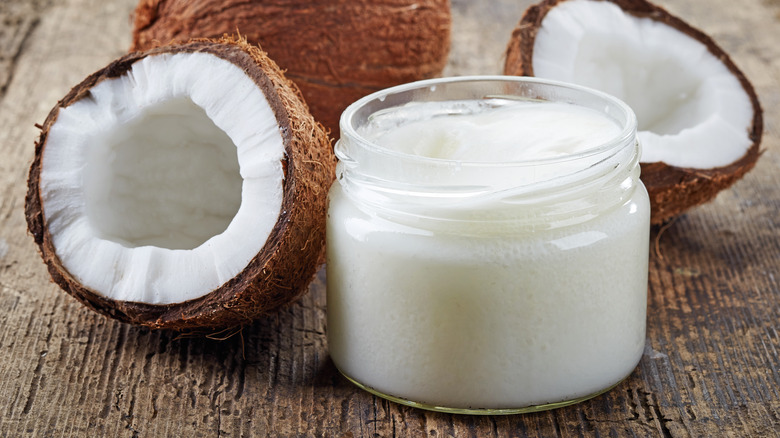Coconut Oil vs Shortening: A Comprehensive Comparison
Coconut oil and shortening are two popular fats used in cooking and baking, each with its own unique properties and flavors. Understanding the differences between these two ingredients can help you make informed decisions in the kitchen and achieve the desired results in your recipes.
Coconut Oil: A Tropical Wonder
Coconut oil is extracted from the meat of mature coconuts and is renowned for its distinct flavor and aroma. It is available in refined and unrefined varieties, with unrefined coconut oil retaining more of the coconut flavor. Here's a breakdown of its characteristics:
- Flavor: Offers a subtle coconut flavor, which can enhance certain dishes, especially baked goods and tropical recipes.
- Texture: Solid at room temperature but melts easily when heated, resulting in a smooth and creamy consistency.
- Health Benefits: Contains medium-chain triglycerides (MCTs) that are believed to provide various health benefits, including boosting metabolism and supporting heart health.
- Versatility: Suitable for both cooking and baking, coconut oil is often used in vegan and dairy-free recipes as a substitute for butter.

coconut oil vs shortening
Shortening: The All-Purpose Fat
Shortening is a solid fat made from hydrogenated vegetable oils, such as soybean, palm, or cottonseed oil. It is prized for its ability to create flaky and tender baked goods. Let's explore its key characteristics:
- Neutral Flavor: Unlike coconut oil, shortening has a neutral flavor, making it ideal for recipes where you don't want the fat to impart any additional taste.
- Texture: Solid at room temperature and maintains its consistency even when heated, resulting in a stable fat for baking.
- Functionality: Creates tender and flaky textures in baked goods, such as pie crusts, biscuits, and pastries, due to its high melting point.
- Long Shelf Life: Shortening has a longer shelf life compared to coconut oil, thanks to its stability and resistance to rancidity.
Coconut Oil vs Shortening: A Comparison
Flavor
- Coconut Oil: Adds a subtle coconut flavor to dishes.
- Shortening: Has a neutral flavor, allowing other ingredients to shine.

coconut oil vs shortening
Texture
- Coconut Oil: Melts easily when heated, resulting in a smooth consistency.
- Shortening: Maintains a solid texture at room temperature and when heated.
Health Benefits
- Coconut Oil: Contains MCTs and is believed to offer various health benefits.
- Shortening: Typically high in unhealthy trans fats and may contribute to health issues when consumed in excess.
Versatility
- Coconut Oil: Suitable for both cooking and baking, especially in vegan and dairy-free recipes.
- Shortening: Primarily used in baking to create tender and flaky textures.
Conclusion
In summary, both coconut oil and shortening have their own unique characteristics and applications in the kitchen. Coconut oil adds a subtle coconut flavor and offers potential health benefits, making it a versatile choice for cooking and baking. On the other hand, shortening provides a neutral flavor and is prized for its ability to create tender and flaky textures in baked goods. By understanding the differences between these two fats, you can choose the best option for your recipes and achieve delicious results every time.